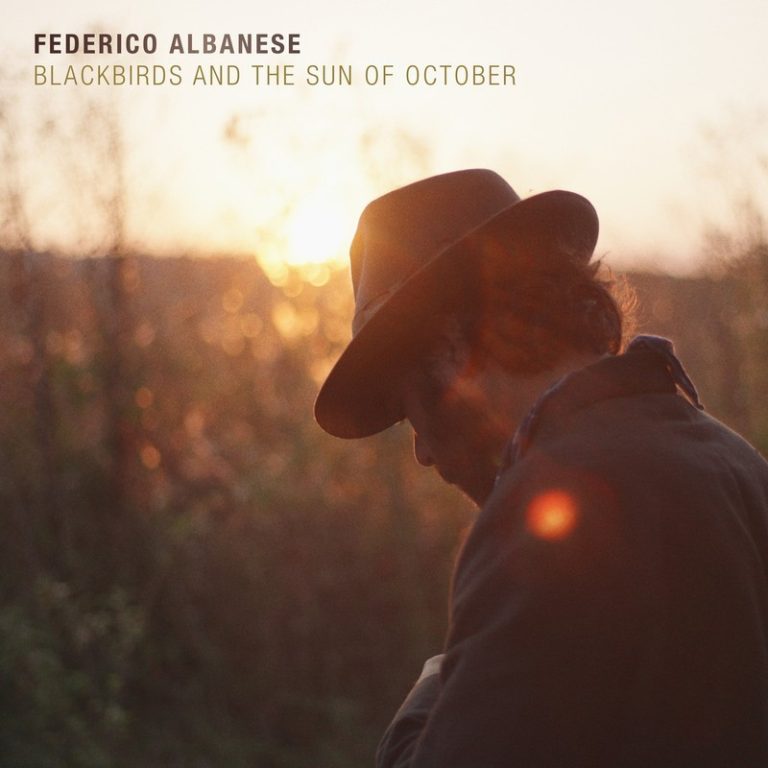Blackbirds And The Sun Of October is an album of homecoming. On his fifth album (and first full length for the XXIM label), Italian composer Federico Albanese returned to his home region of Monferrato in Northern Italy, taking inspiration from his autumnal surroundings. “There’s a sense of freedom about returning that seeps into everything you do – including music,” Albanese explains. After living, writing, and recording in Berlin for years, Monferrato inspired cosiness and crispness. Blackbirds is an intimate album of oranges and deepening reds permeating a blank canvas, a snuggly refuge to gather loved ones into. It’s an album that asks you in and to shut the door after you.
Because of its intimacy, Blackbirds requires the same from the listener. This is music for quiet spaces; its softness easily gets drowned out in headphones in a public space, only becoming discernible in the few moments across its 13 tracks where the volume rises to a dramatic peak. (It also proves that Albanese is a perfect fit on XXIM label alongside the likes of A. Blomqvist and Olivia Belli.) Nuzzle in and there are sweet, sentimental moments to find: the contemplative tone of “Song for the Village”; the cosy way synth-like streaks swirl between bunched notes on “Your Spell”; the slow morning stretch of opening track “Into the Sun” as it fades in from silence; and the way the piano chords chime in a homely way on “The Prince and the Emperor”, notes ringing out like they are echoing down a hallway in a family home.
It’s those louder moments that are the most striking and memorable though, the ones where Albanese’s knack for making a cyclical, repeated phrase burrow into your head. “Bloom” is a pensive, palm-wringing piece of rigid strings layering up beside increasingly loud piano notes; it is waiting to be used as the title track to a TV drama, if not to soundtrack a particularly tense chess match. On “Ulysses”, piano notes are tapped over bleary strings before a drum track sleekly enters. It’s not the most fervent track here, but there’s a Hauschka-like denseness to it as the tapestry is filled with a soft ease. “Blackbirds” takes a working rhythm that cycles back and over itself, and the drum track adds a curious dance-like feel to it; not dissimilar to Runar Blesvik’s brand of melodrama, it has the feel of a modern dance performance, angular and awhirl.
Given that he reprises the same feel on “Re-Sphere” towards the end of the album, Albanese seems to agree that these heightened moments are the highpoint of the record. The track is doused in more violins, exploring a more melancholic side to the theme, and while trying different directions with similar material is a welcome and often bountiful path, on “Re-Sphere” all the strings crescendoing make for a faceless side to the music. It’s just pretty noise amongst the peace of the rest of the album. There are similar moments – “The Libertine”, “Adelasia” – where the music is handsome, even lightly rousing, but feels like passing features on a car ride through a picturesque landscape.
The delicacy that Albanese works with here is undeniably pleasant if you nestle in with it; Blackbirds can feel like coming home to a crackling fireplace. But its replay value comes from those more vigorous moments, where intensity and stakes seem to grab hold for a few minutes. It’s tracks like this where the din of the city trickles into the Italian countryside. This may be an album of returning, but Blackbirds sounds like Albanese is still settling back in; still lured that little bit by Berlin, but trying to enjoy the sanctuary of the Monferrato countryside too, he can’t entirely make it feel like home.

